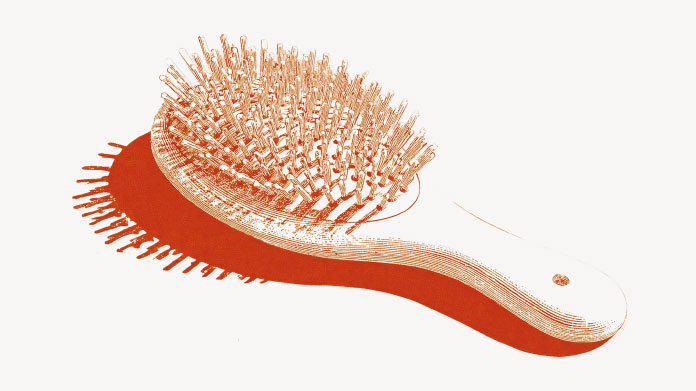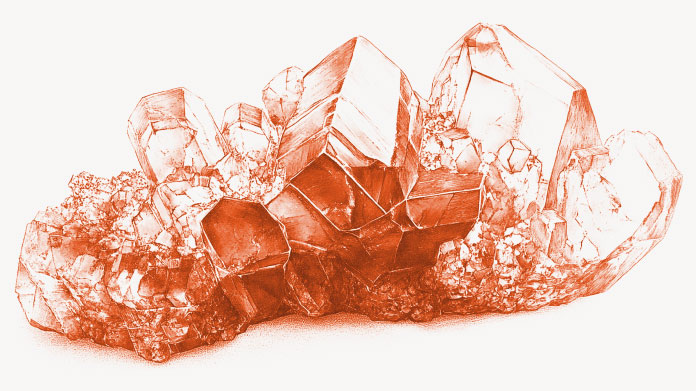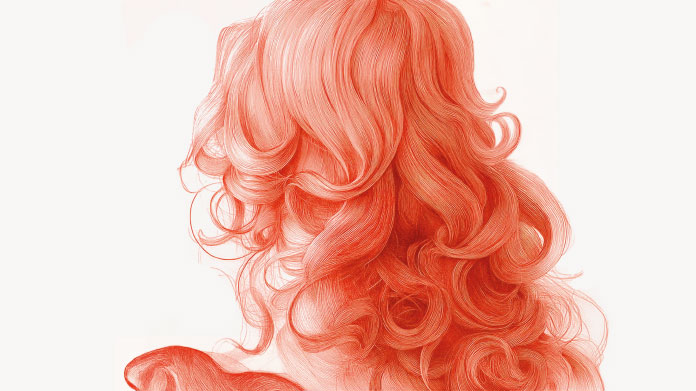7 tips for naturally beautiful nails
“You have beautiful nails, you know …” If this is a compliment you’ve never been paid, then perhaps it’s time to really start giving those keratinous plates at the tips of your fingers a bit more TLC. Discover 7 natural and simple tips to help you have strong, white, shiny fingernails.

Water weakens your nails!
Are you a frequent hand-washer? Whilst good hygiene is essential for preventing infectious disease, your nails are not quite so fond of such regular contact with water. They end up becoming softer, weaker, and more brittle.
To reduce the damage, choose a gentle, moisturising soap and think about wearing gloves whenever possible: to do the washing up, households tasks, etc.
It’s been scientifically proven that zinc helps to maintain healthy nails(1-2). Which foods contain this important trace-element? Oysters, crab, lobster and clams all have a high zinc content, as does meat – opt for calves’ liver, or shoulder of pork. Eggs are also a good source, but if you don’t eat any animal-source foods, you can obtain zinc by regularly consuming sesame and pumpkin seeds, or cashew nuts.
To boost your zinc intake, you could also take a dietary supplement. The best option is one containing zinc orotate, a form of zinc with high bioavailability (for example, the product Zinc Orotate). There are also special formulations offering a combination of natural compounds good for the hair and nails (such as Hair & Nails Formula, rich in zinc, biotin, solubilised keratin, extract of bamboo, etc.)
Go easy on the manicures
For beautiful nails, don’t overdo the manicures. This advice may seem counter-intuitive given that your sessions at the manicurist are all about the aesthetic care of your nails, but invasive manicures can actually have the reverse effect.
Over-zealous cleaning of the dirt that gathers underneath your fingernails can cause a slight separation of the nail plate from the nail bed, providing an entry point for the growth of bacteria and fungi. So by all means clean your nails, but not to the point of damaging them!
The same goes for nail varnish and false nails. Use them from time to time, but be aware that your nails also need a breather, so make sure you regularly leave them ‘au naturel’.
Eat bilberries
Bilberries are known for promoting good visual acuity (3), but their benefits don’t stop there! Scientific studies have shown they’re also useful for nail and hair care(4).
To ensure an excellent intake of bilberries, you could opt for a supplement containing a bilberry extract with a high level of anthocyanosides, one of the fruit’s key active ingredients (such as Bilberry Extract, good for your eyes ... as well as your nails).
Moisturise your hands right up to your fingertips
Nails that are poorly-hydrated can become ridged and brittle. To prevent that, you need to moisturise them by regularly applying an oil to the base of your nails such as sweet almond, argan, avocado or black seed (nigella). If you don’t have any of these to hand, look in your kitchen cabinet: olive oil or sesame oil are excellent substitutes!
By doing this regularly, you’ll be rewarded with stronger, tougher nails, and softer cuticles. Another benefit of applying oil is that it helps to activate microcirculationaround your nails, helping them to grow faster.
Yellow nails? Quit smoking!
Do your nails have a yellow tinge? Do you routinely apply nail polish to hide this unsightly coloration? Yellowing of the nails can be caused by a number of factors, including cigarettes. The good news is that by stopping smoking, your nails will gradually return to their normal colour.
Having said that, yellow nails could be a sign of underlying disease: psoriasis, diabetes, thyroid issues or jaundice. So be sure to consult your doctor to rule out any serious health problems.
Selenium, a mineral that’s good for your nails
Selenium is a trace-element which helps protect cells against oxidative stress. It also plays a part in normal immune system function and in maintaining healthy nails (5-7).
Which foods should you eat for an adequate intake of selenium? Brazil nuts are a good source, as are fish, sea food, and chicken... Another way of boosting your intake is to take a supplement containing L-selenomethionine, an organic form of selenium that’s particularly well-absorbed by the body.
References
- Saper RB, Rash R. Zinc: an essential micronutrient. Am Fam Physician. 2009;79(9):768-772.
- https://www.anses.fr/fr/system/files/NUT2007sa0315t2.pdf
- Chu W, Cheung SCM, Lau RAW, et al. Bilberry (Vaccinium myrtillus L.) In: Benzie IFF, Wachtel-Galor S, editors. Herbal Medicine: Biomolecular and Clinical Aspects. 2nd edition. Boca Raton (FL) : CRC Press/Taylor & Francis ; 2011. Chapter 4. Available from: https://www.ncbi.nlm.nih.gov/books/NBK92770/
- EFSA Register of Questions - https://www.efsa.europa.eu/en/register-of-questions
- Kieliszek M. Selenium⁻Fascinating Microelement, Properties and Sources in Food. Molecules. 2019;24(7):1298. Published 2019 Apr 3. doi:10.3390/molecules24071298
- EFSA Register of Questions - https://www.efsa.europa.eu/en/register-of-questions
- Rayman MP. Selenium and human health. Lancet. 2012 Mar 31;379(9822):1256-68. doi: 10.1016/S0140-6736(11)61452-9. Epub 2012 Feb 29. PMID: 22381456.
1 Days
Good quality product and customer service.
So far, I'm liking this product, and the customer service was very good.
ELZL
8 Days
The products I use are excel·lent
The products I use are excel·lent
ROSAS Josep Maria
16 Days
Delivery is prompt and I never saw a…
Delivery is prompt and I never saw a quality problem with the manufacturing. It is not possible to assess efficacy on a personal basis, since too many factors come into play. Efficacy can only be assessed statistically with a sufficient number of cases.
Roger De Backer
17 Days
I collaborates with the Supersmart…
I collaborates with the Supersmart more than 10 years. Every thing is going good. Quality of the things is good. Delivery comes in time. Five stars definitely !!!
Oleksiy
17 Days
All good
Simple, frictionless site, easy ordering, good delivery updates and execution.
Chris Robbins
19 Days
I feel better
I feel better
Peter Ammann
19 Days
Prompt delivery
Prompt delivery
JAKUB Radisch
21 Days
My new go-to for top quality supplements!
I am buying more and more of my supplements from this superb, high quality company. Cannot recommend it enough. Plus, excellent customer service with a quick, helpful team and speedy deliveries. Highly recommend Supersmart!
Cecilie H.
24 Days
SUPERSMART WHAT ELSE👍
SUPERSMART WHAT ELSE👍
DIEDERLE Christophe
27 Days
Excellent quality products with…
Excellent quality products with innovative formulas, as someone who has been suffering with acid reflux, these supplements have been lifesavers.
Oriana Moniz
27 Days
high quality supplement!
high quality supplement!
GALANT
28 Days
Good service prompt delivery
Good service prompt delivery
Mrs Marcella Reeves
33 Days
I like your clear explanation
I like your clear explanation. And how to make a choice of products for a specific health problem
Ingrid
39 Days
Great product and it arrives quickly.
Great product and it arrives quickly.
SOMMARIVA Gianni
40 Days
Excellent products and fast service.
Excellent products and fast service. What do we need more?
Margarida



